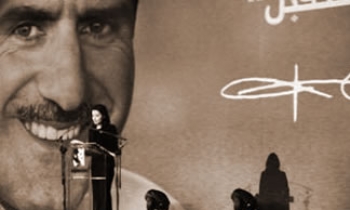Ukranian parliament has overwhelmingly approved a bill prohibiting state authorities from carrying out inspections of media groups during the forthcoming parliamentary election campaign, report agencies.
 RED RIDING HOODS: Reporters dressed in red overcoats hang a dummy made from Ukrainian newspapers during a protest near the parliament in Kiev November 17, 2005. Leading reporters staged a rally to protest against proposed curbs on media activities during the campaigning for parliamentary election next year. (Reuters/Gleb Garanich)
RED RIDING HOODS: Reporters dressed in red overcoats hang a dummy made from Ukrainian newspapers during a protest near the parliament in Kiev November 17, 2005. Leading reporters staged a rally to protest against proposed curbs on media activities during the campaigning for parliamentary election next year. (Reuters/Gleb Garanich)The lawmakers on Friday also cancelled part of a law that barred the media from editorialising about political forces during the campaign and empowered the Central Election Commission to close down any media outlet found in violation. Under the changes, the ground rules were loosened and only a court was given the right to shut down media violators. Parliamentary elections will be held in March next.
The original law was adopted in response to last year's bitter presidential election, during which losing candidate Viktor Yanukovych, backed by outgoing President Leonid Kuchma, used state media to discredit his opponent, current President Viktor Yushchenko. Independent media faced stiff government pressure during the campaign.
Under the changes, media outlets not owned by political parties are barred from devoting more than 20 per cent of their print space or air time to party propaganda. Ahead of the vote, about 30 journalists in executioner-style hoods hung an effigy symbolizing a newspaper outside the parliament building.
Mykola Tomenko, a former vice prime minister, called the changes "an important victory for journalists over groundless restrictions."
Article 71 of Ukraine's election law states that the licence of print and broadcast media may be revoked without a court order in the following instances: calls for a change in the Ukraine constitution, incitement to violence, war propaganda or distribution of knowingly false information about a political party.
Article 68 of the law states that equal opportunities should be provided to candidates in relation to the use of the media, but goes on to say that: "Events of the election campaign may be covered in all media outlets of all forms of ownership as news coverage based on unbiased, objective reports of specific information of events, with no comments and assessments."
"Article 68 will stifle political debate and prevent journalists from effectively scrutinising political arguments, while article 71 is a straightforward and chilling threat to press freedom," said Arne Konig, chair of the European Federation of Journalists, regional body of the International Federation of Journalists (IFJ) earlier.
Ukraine made a spectacular improvement in Reporters sans Frontières' (RSF) 2005 Press Freedom Index, going up from the 138th position in 2004 to 112th this year mainly because of the abolition of censorship since the "orange revolution". Elsewhere the arrest of the perpetrators of the murder of journalist Géorgiy Gongadze � the case which marked the beginning of the end of the Leonid Kuchma regime � took Ukraine off the list of "predators of press freedom" drawn up each year by RSF.
RSF had recently said that the parliamentary elections next March would be a decisive step in the consolidation of Ukraine's democracy. The media must be allowed to work freely and the authorities must take responsibility for ensuring this. Unfortunately, a ban slapped on journalists preventing them from commenting on the various candidates' election programmes does not auger well for media coverage of this crucial event, the press freedom organisation said.
Ukranian parliament also voted overwhelmingly to create a special committee to investigate allegations of pressure on journalists. The committee will, in particular, look into the beating of the editor of a Communist Party newspaper in the eastern city of Donetsk a week back.
The commission will also investigate the firebombing of a car owned by a celebrity tabloid editor, which came ahead of the planned publication of vacation photographs of Yushchenko's teenage son. It was unclear when Yushchenko, who praised the new legislation, would sign the bill into law.
Both attacks remain unsolved.









